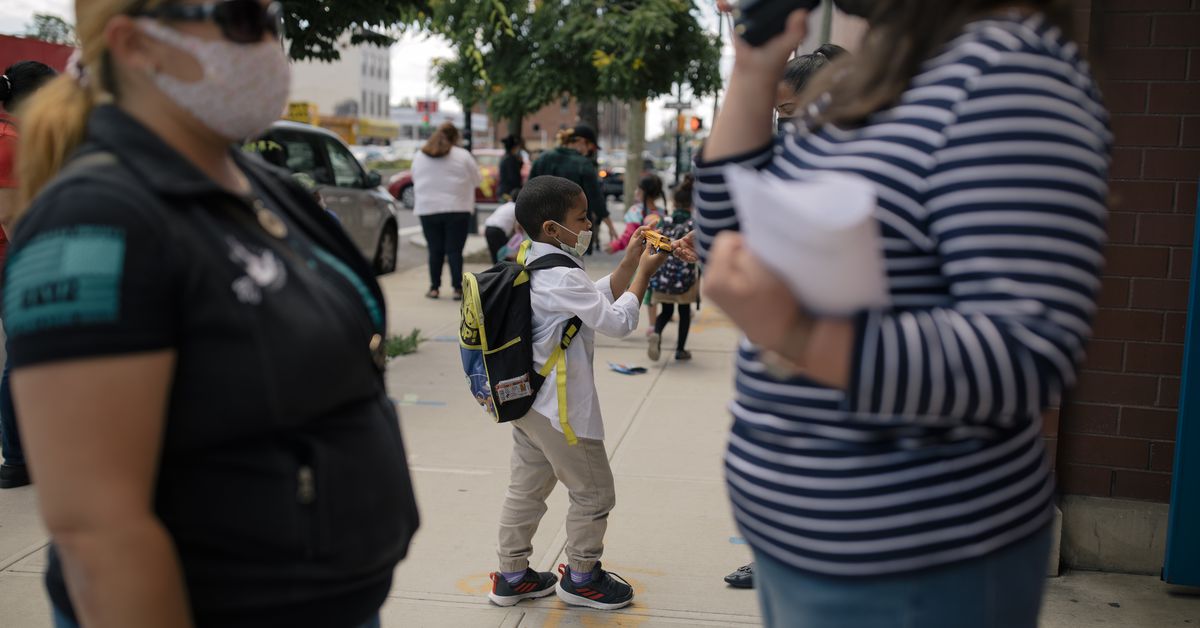How pandemic could change education funding
Since schools across the country have been shut down and transitioned to online learning in response to the COVID-19 pandemic, many states are adapting new funding approaches that allow students and their families to choose where and how they’re educated. So far, 13 states have enacted some form of this concept using tax credits or vouchers for students to attend public, private, or charter schools – or even in some cases homeschooling.
It’s a model that some education experts and state lawmakers believe would rectify many issues plaguing Washington schools despite the mass infusion of new dollars following the 2012 Supreme Court’s McCleary decision. Among the growing complaints with many parents is how schools have resisted returning to in-person learning after a year of remote instruction.
“I think that the frustration of parents in dealing with these inflexible, unresponsive bureaucracies has led to their expansion of this idea in other states,” Washington Policy Center Education Director Liv Finne said. “All the parents have seen these districts are not set up to meet a challenge like COVID. The public schools have failed to meet the challenge, especially in the big urban districts.”
Washington’s state constitution makes it a “paramount” duty to provide a basic education for all children in the state. The K-12 system is funded primarily through the state property tax, while additional school programs that go beyond that are funded by local levies. Funding for schools is based in part on the number of students attending.
“Right now, we pretty much have a one-size-fits-all-model,” Rep. Vicki Kraft (R-17) said. “We have very narrowly tailored it particularly to public education.”
She added that while parents can homeschool or send their kids to private schools, it’s an additional cost on top of funding public schools. “It’s really not fair for our students or our parents.”
After the McCleary decision, the legislature increased spending by $12 billion per biennium, much of that money going to school employee salary increases. Yet, student performance has not only remained unchanged since, but academic achievement last year took a nosedive as students switched to online learning. Although all schools in the state plan to reopen in-person learning in the fall, unions such as the Seattle School District’s fought against returning to the classroom even as Governor Jay Inslee advocated for it.
Finne says the COVID-19 response has only exposed flaws in the current public education system and the power of teachers’ unions, problems she believes direct student funding could address.
“It really puts the parent in the driver’s seat instead of fighting an unresponsive bureaucracy whose incentives are not aligned with the needs of the child,” she said. “You could customize what you use that money on. You could use that money on online curriculum. You could buy tutoring services that you can’t teach. You can get behavioral therapy the child needs.”
The main question is how viable such a proposal is in Washington compared to other states in the country. On one hand, Finne points to a recent poll by the American Federation of Children in which 40 percent of parents surveyed said they are more likely to look at alternative education options once COVID-19 restrictions are over.
On the other hand, some may be skeptical about such a fundamental shift in how education money is spent at a time when students have to navigate a homeless encampment on the campus. At the same time, the prolonged situation has drawn not only protests by parents but an investigation by the Department of Labor and Industries.
Within the state legislature, education funding legislation introduced this session that made far less ambitious changes nevertheless received ardent pushback by key committee members. Rep. Vicki Kraft (R-17) sponsored HB 1215, which would have provided $7,000 through a proposed K-12 education scholarship program for students to attend a school of their choice. However, the bill failed to get a public hearing in the House Education Committee.
Kraft told Lens that she intends to reintroduce a revised version of the bill next year. “I am working to expand the discussion in this area, certainly with or without me it’s expanding. Parents are coalescing. They’re very concerned about different aspects of instruction in our schools today.”
One issue Kraft’s bill addressed was how state dollars allocated to the student could be spent outside the public education system along with protections against state encroachment on private institutions.
“If it happens to be a faith-based institution or school, the government can’t overexert their authority,” she said.
Sen. Mark Schoesler (R-9) this session sponsored SB 5200, which would have offered $15,000 scholarships for special needs children and foster care children to attend a private school. It failed to advance after a public hearing in the Senate Committee on Early Learning & K-12 Education and drew critical remarks from committee members, who also engaged in a debate over whether the bill was a scholarship or voucher program.
Sen. Jamie Pederson (D-43) said the bill would amount to “defunding public schools,” while Vice Chair Claire Wilson said families are “looking for new services, they’re not necessarily looking for a new system. I think it’s critically important that we continue to have the conversation about how we are providing our support services….and it’s not necessarily about changing the full system. It’s how we’re leveraging what we have.”
Chair Lisa Wellman (D-41) said during the hearing that “what I was hearing…is definitely, this is a voucher program for parochial schools. It’s fine if you want to say that’s what it is and understand that. There may be some programs that would make sense.”
Despite this, both Finne and Kraft are optimistic about long-term changes.
“What needs to change is the political environment in Olympia, if you’re going to pass it through the legislature,” Finne said, adding that if legislators don’t act, voters might – via an initiative.
“I believe if the trajectory we’re on continues, the answer is absolutely yes,” Kraft said on whether the funding model will change. “At the end of the day, this all comes down to ensuring the best education for students.”







